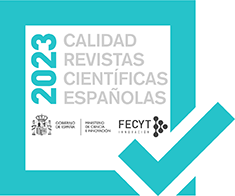Título: “La renovación energética ante el cambio climático: marco estratégico, instrumentos y prácticas”
Title: “Energy Renewal Before Climate Change: Strategic Framework, Instruments And Practices”
Autora: Pilar Dopazo Fraguío, Profesora Contratada Doctora, Derecho Administrativo. Universidad Complutense de Madrid
Fecha de recepción: 03/12/2019
Fecha de aceptación: 17/12/2019
Resumen:
En la actualidad se reconoce la amplia proyección que la cuestión climática adquiere en el presente y a fututo, lo que implica actuar con certeza y celeridad, adoptando decisiones firmes y acciones conjuntas que resulten eficaces y a su vez eficientes, todo ello en interés colectivo. En este contexto, surge y se configura el proceso de transición energética con base a las estrategias europeas y nacionales que han sido trazadas, en aras de cumplir con los compromisos internacionales asumidos. Sin duda, el desafío climático conlleva importantes retos (globales), -ambientales, sociales y económicos-, hacia la configuración del nuevo paradigma energético, y por ende, también supone actualizar el clásico sistema regulatorio en este ámbito. En este trabajo se examina y reflexiona sobre aspectos principales de esta evolución energética, en donde las renovables se posicionan como una alternativa necesaria. Lo que a su vez, puede ser una buena oportunidad para la consolidación competitiva de nuestro sector energético, ligada a una inversión “responsable” y destinada a “proyectos renovables”, que resulten sólidos y viables a largo plazo. Asimismo, se refieren las nuevas modalidades de acuerdos que en esta área de actividad son implementados a dicho fin.
Abstract:
The broad projection of the climate issue in the present and future is now recognized it involves acting with certainty and speed, taking firm decisions and joint actions that are effective and at the same time efficient, all in the collective interest. In this context, the energy transition process emerges and takes shape on the basis of the European and national strategies that have been drawn up in order to comply with the international commitments undertaken. Without a doubt, the climate challenge brings important challenges (global), – environmental, social and economic-, towards the configuration of the new energy paradigm, and therefore, it also involves updating the classic regulatory system. This paper examines and reflects on main aspects of this energy evolution, where renewables are positioned as a necessary alternative. This, in turn, can be a good opportunity for the competitive consolidation of our energy sector, linked to “responsible” investment of the “renewable energy projects” which are solid and viable in the long term. It also refers to the new modalities of agreements in this area that are implemented to that end.
Palabras clave: Renovación energética; Energías renovables; Eficiencia energética; Acuerdos PPA
Keywords: Energy renovation; Renewable energy; Energy efficiency; PPA agreements
Sumario:
1. Introducción
2. Cambio climático y transición energética: una vinculación necesaria con proyección internacional
3. Marco estratégico y objetivos “energéticos” de la Unión Europea
3.1. La Estrategia Europea Común
3.2. Estrategia Europea (E2020) y objetivos previstos a futuro (E2030 y E2050)
3.3. Planificación estratégica en España y estabilidad regulatoria. (Referencia al reciente RD-ley 17/2019)
4. Renovables y eficiencia energética como presupuestos de calidad ambiental
4.1. El posicionamiento de las fuentes de energía renovable: reto y oportunidad
4.2. Sistema de acreditación del empleo de fuentes renovables
4.3. La contratación pública como herramienta de fomento
5. Nuevas prácticas jurídicas para la financiación de proyectos en renovables (acuerdos PPA)
5.1. ¿Qué son los PPA y cuáles son sus características identificadoras?
5.2. Configuración y tipología
5.3. Prácticas atípicas con alta proyección y valoración sobre su posible regulación
6. Corolario
7. Bibliografía y documentación
Summary:
1. Introduction
2. Climate change and energy transition: a link required with international projection
3. Strategic framework and “energy” objectives of the European Union
3.1. The Common European Strategy
3.2. European Strategy (E2020) and future objectives (E2030 and E2050)
3.3. Strategic planning in Spain and regulatory stability. (Reference to the recent RD-law 17/2019)
4. Renewable and energy efficiency as environmental quality requirements
4.1. The positioning of renewable energy sources: challenge and opportunity
4.2. Employment accreditation system from renewable sources
4.3. Public hiring as a promotion tool
5. New legal practices for the financing of projects in renewables (PPA agreements)
5.1. What are PPAs and what are their identifying characteristics?
5.2. Configuration and typology
5.3. Atypical practices with high projection and assessment of their possible regulation
6. Corollary
7. Bibliography and documentation
Documento completo: “La renovación energética ante el cambio climático: marco estratégico, instrumentos y prácticas”
Doi: https://doi.org/10.56398/ajacieda.00141



